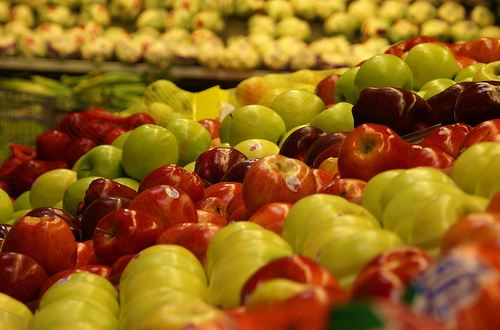KraziKayzi
Silver Member
I thought I would start a thread where I will feature a food and list some interesting facts, the benefits and the drawbacks to these foods and other bits of information that you may be interested in!
Well I hope you are interested in my Food Fact Thread and I hope to post each day on here!
I am not saying I am an expert of food, neither am I a dietition, I just enjoy reading up about food facts, so thought I would share my findings
Well I hope you are interested in my Food Fact Thread and I hope to post each day on here!
I am not saying I am an expert of food, neither am I a dietition, I just enjoy reading up about food facts, so thought I would share my findings
Apples

Benefits
Good source of vitamic C, depending on the variety
Good sorce of bioflavonoids
High in Soluble fibre
May help in the treatment of constipation and diarrhoea
Good source of vitamic C, depending on the variety
Good sorce of bioflavonoids
High in Soluble fibre
May help in the treatment of constipation and diarrhoea
A fresh apple is the ideal, healthy snack. Some varieties are a good sorce of vitamin C, which is an antioxidant and helps to maintain the immune system. Apples are also relitively low in calories and contain a high proportion of fructose, a simple sugar that is sweeter than sucrose (table sugar) and metabolised more slowly - helping to control blood sugar levels. Bioflavonoids in apples may protect against lung disease and be helpful to smokers.
In herbal medicine, ripe, uncooked apples have traditionally be used as a treatment for constipation, while the stewed fruit can be eaten for diarrhoea and gastroenteritis. Apples are also used in poultices for soothing skin inflammations.
Last edited:



